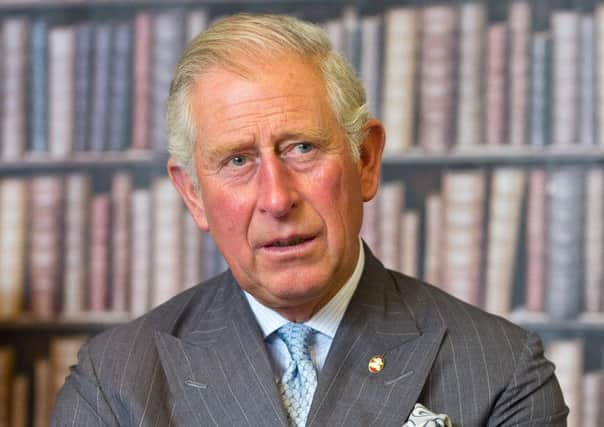Jayne Dowle: King-sized changes when Charles takes the throne


He has often been considered obtuse or difficult to read. Gradually though, as the prospect of ascension becomes less of a far-off concept and more of a possibility on the horizon, he is beginning to put his cards on the table. Now sources close to Prince Charles are letting us know that when he eventually does become the reigning monarch he will not hold back from “heartfelt interventions” in the politics of the country.
For an heir to the throne to signal his intentions before he even gets there is unprecedented in modern times. And for those intentions to suggest both a determination to do things differently and to do them with passion should make us stop and think.
Advertisement
Hide AdAdvertisement
Hide AdHe is a traditional man in many ways, but there is no way that Prince Charles will follow tradition. His mother has made it her life’s work to maintain her own counsel and be the soul of discretion. In public, she has never betrayed a political sentiment in her life. Taciturn to a fault, she has created a force field around herself to repel the slings and arrows. Prince Charles, in comparison, likes to get stuck in. Not for him the figurehead status of his father, the Duke of Edinburgh, patron of this charity and that organisation.
For a man who still has a valet, the prince is not afraid of getting his hands dirty. Those who have met him talk of his burning desire to find out what “ordinary people” think. How ironic that he wishes so passionately to engage, whilst our elected leaders seem ever more remote from real life. While the possibility of him becoming king was still distant, his “heartfelt interventions” were usually dismissed as the ramblings of a chap with too much time on his hands.
However, the time frame is becoming ever tighter. His mother is 88 now. There is no evidence of a pending abdication. Yet there are clear signs that her son is shaping up as a kind of semi-official Regent – he flew to South Africa last year to represent her at Nelson Mandela’s funeral.
We might expect this devotion to public duty from a man who has been groomed to become king all his life. We do not, however, expect to hear evidence of a deeper philosophy emerging on the nature of kingship. I suppose it is indicative of our self-reflective times. The trend is for every action and reaction to be examined forensically for motivation.
Advertisement
Hide AdAdvertisement
Hide AdThis yearning for deeper meaning on the part of the monarch-to-be also calls into question what a king should actually be, and how far the head of state’s responsibility should stretch. It makes us wonder whether it is time for the role of the monarch to be redefined, not just in its perception, but in political terms. When you think about it, our understanding is hopelessly out of date. It has changed little since political journalist Walter Bagehot supplied a definition in 1867. “To state the matter shortly, the sovereign has, under a constitutional monarchy such as ours, three rights – the right to be consulted, the right to encourage, the right to warn. And a king of great sense and sagacity would want no others.”
It is ironic that a man who has spent so long under the shadow of his mother should emerge as the one who looks like going down in history as the major architect of change. When people question what he has done in preparation for rule, perhaps they have been looking in the wrong place. All those years to think and consider. And all those years to watch as the political system in the United Kingdom has undergone – and continues to undergo – seismic change.
Like many of us, he must regard the current party leaders and think to himself – perhaps I could make a better job of it myself. The question is: how to provide leadership without actually being a democratically elected leader?
Can you blame an intelligent and idealistic man for not wanting to make things better though? It will be interesting to see how this plays out. If his wish to intervene and make his point known comes true, how will the British public take to it? It is one of the greatest contradictions in a country that lionises royalty and surrounds it with pageantry, but for centuries now, we have become accustomed to the monarch as the quiet figure in the background.
Advertisement
Hide AdAdvertisement
Hide AdWhat would we make of a king who chooses to interfere? Not only would this call into question constitutional matters of the deepest significance, it would also make us all rethink entirely what a monarch should stand for. We might not like it, but we will get the king we deserve when the Prince of Wales is enthroned.